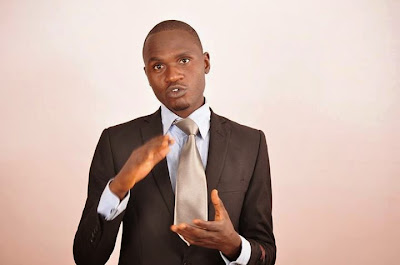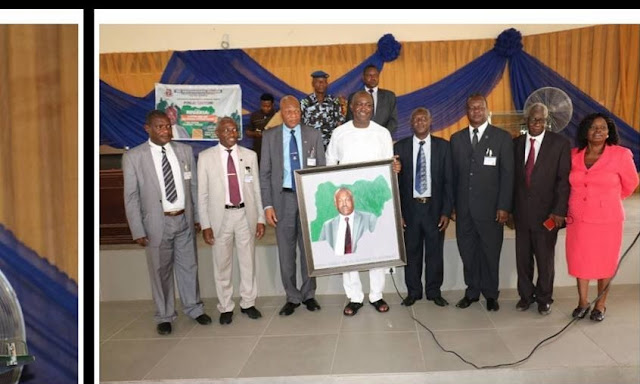British Crown And African Sit-Tight Rulership
Agenda For Peace With Mr.Rights: British Crown And African Sit-Tight Rulership
Written by Abdulrazaq Hamzat
British history has it that, the monarchy is the “raft of people who are paid out of the civil list”. Structural Marxism argues that, the monarchy symbolizes an “ideological state apparatus” through which stability is retained while the elite theorist claims that the monarchy represents the elites whose presence invariably helps to define and sustain the classed society.
Study shows that, British monarchy is over 1195 years old and it and the parliament are the main ingredients of British sovereignty. The monarch and in this case, the queen is the head of state of the armed forces. It ascertains its relevance through the allegiance oath taken by the judiciary and the armed forces as both swear allegiance not to the state but to the crown.
Before the 18th century, the British ruler had legislative and executive powers, but things changed in the 18th century during the reign of Queen Victoria. From then onward, the queen became a constitutional monarch. This is however mainly a symbolic and ceremonial post as they are advised by the executive arm of the government. The monarchy however maintains the power to declare war, make peace, impeach and select a prime minister, appoint judges, magistrates and councilors.
The present head of the British Empire is Queen Elizabeth the second, who was crowned on the 6th February, 1952. She has the sole responsibility of overseeing the affairs of the United Kingdom and its territories worldwide. She and the royal family are saddled with official, ceremonial and representational duties.PCR 417
The purpose of the above history is to help us widen our understanding of the British government which has the queen, a life time hereditary position as the head of government with the power to appoint and impeach the prime minister. The queen also has the sole power to declare war, make peace, appoint judges, magistrates and councilors.
This part of British history is necessary because, I have seen Africans argue in favor of or compliment foreign argument about sit tight rulership in Africa.
During the campaign against Lauren Gbagbo, former president of Ivory Coast, many bought the argument of the foreign countries condemning African rulers of sit tight rulership. In another development, Col. Muhammed Gaddafi was accused of sit tight rulership which according to many Africans, justify the invasion of Libya and Ivory Coast to oust their respective former presidents. Although at that time, Libya had its prime minister which wasn’t Gaddafi. The role of Gaddafi was more like the role of the queen of England.
Today, Robert Mugabe of Zimbabwe and many other African leaders are constantly being condemned for no other reason other than being sit tight rulers.
However, what continues to surprise this writer is the fact that, if Africans condemn fellow Africans due to sit tight rulership to an extent that we support foreign invasion of African countries to dethrone them, how come no one is condemning the sit tight rulership of the queen of England?
In such a modern world of civilization, where democracy is sweeping every nuke and corner of Africa and the world, an ancient state such as England have prevented democratic governance to take effect in its state. England under the leadership of the queen continues to prevent democracy, where people could elect their own choice of leaders, neither does it open British leadership to democratic elections.
Despite the absence of democracy in England which obviously manifest sit-tight rulership, it is regrettable that no one is condemning or talking about this glaring act of sit tight rulership, but everyone including Africans are fast to condemn African leaders who hold unto power.
It worth stating that, the sit tight rulership of African leaders is not constitutionally hereditary, unlike that of England which empowers the royal family to rule as birth right. Once a daughter is given birth to in the royal house, she automatically posses the right to rule. Once a queen is crowned, she automatically becomes the head of government with sovereign power. A position she will continue to occupy until her death. And even upon death, her children inherit that position as a matter of right.
In my opinion, there is no sit tight rulership in the world that can be equated with that in England; I stand to be corrected though. It is however surprising that Africans who see such occurrence abroad look elsewhere, yet partner with those who had worst case study to destroy their own continent in the name of ousting a sit tight ruler.
My position on such matter is simple, sit tight rulership is not encouraged in whatever capacity, but as Africans, we must not maintain a double standard against it, neither should we allow external forces to have freedom of distorting and dictating what we believe.
History has it that, the British crown can be traced back to 1000 years with the evolvement of the kingdoms of England and Scotland. It should be noted that the Act of Settlement 1701 excluded Roman Catholics by birth or through marriage from the royal lineage. In 1707, there was the amalgamation the kingdoms of England and Scotland and this fusion led to the creation of the Kingdom of Great Britain and in 1801, the kingdom of Ireland was fused with the Kingdom of Great Britain and this led to the creation of the United Kingdom of Great Britain and Ireland. In the 1920s, a vast majority of Irish states broke away from the kingdom and went ahead to form the Irish Free States and after the second World War , most of the erstwhile colonies and territories gained independence, after this, Queen Elizabeth II adopted the title head of the Commonwealth. This however is only a ceremonial title. The monarch also plays a constitutionally approved role in the church and in this case, the incumbent queen, Queen Elizabeth II acts as the governor of the Church. The queen and prime minister play a ceremonial role in the appointment of the archbishops and bishops in England. Indeed, the British crown has been one of the most important non-state actors in both the ancient and the modern world. Being the head of the British Empire, the monarch is accorded the highest respect possible by the British public, but what is however puzzling is that the international community equally accords the British crown the best form of respect ever possible. This is not unconnected to the strides that Britain had made in the 19th century through the colonization of territories all over the world. This makes the British Empire or colonized territories extend to every part of the globe; Africa, America, Asia, Oceania, etc. Britain colonized the US, Australia, New Zealand, India, and numerous countries in Africa (Levine, 2007).
Most of these countries gained independence and became members of the Commonwealth of Nations. The Commonwealth of Nations is led by, and exists on the goodwill of the British crown. Quite a number of British colonies, even after independence ceremonially respects and accords ceremonial roles to the British monarch. In this respect we have Australia, New Zealand, and Nigeria until 1963.
This translates to the fact that the importance of the British monarch transcends the United Kingdom. Though may not be as powerful as it was in the earlier centuries but yet still commands immense respect both in and outside of Britain. This respect is even more glaring on states and official visits, and also in the yearly meetings of the Commonwealth Head of State and government meetings. By extension therefore, the position of the British monarchy on issue of relevance to the international system is very important and regarded with utmost respect by states and other non-state actors. PCR417.
What gained the British queen such respect in International circle is the sit tight rulership. Therefore, If the queen of England is accorded due respect in her capacity as a sit tight ruler across the world, why should African sit tight rulers be castigated for no other reason than being sit tight rulers?
We must also note that, the British people had severally accused the royal family of consuming larger percentage of the British budget, an accusation which sparked protest some couple of times. Some of these protests see police shooting at protesters and violating their fundamental human rights.
During these protest, we hardly hear of international condemnation against the sit tight rulership of the queen, neither did we hear of condemnation about the misappropriation of funds, which the royal house was accused of, or the violation of citizens’ human rights.
Africans who are quick to condemn sit tight rulership at home also never utter any words against the British autocracy; neither did they have solidarity with the British people against such dictatorship. There was no foreign intervention in Britain to oust the queen having been opposed by the people themselves, yet some misguided Africans continue to argue in favor of foreign invasion to oust African sit-tight rulers.
British citizens in 2012 staged a powerful anti- monarchy protest on the banks of the themes ahead of the Queen’s Diamond Jubilee river pageant. The protesters, supporters of the campaign group held banners and placards saying ‘power to the people’, citizen not subject, and “democracy not monarchy’’ as they called for the abolition of the monarchy. They are campaigning for an elected head of state to replace the monarchy. They also called for a new constitution that really puts power in the hand of voters. This is similar to the protest in Libya which called for an elected head. The protest involved a delegation from the Swedish republican movement as well as representatives of Republic from branches in Scotland and Wales.
According to one of the protesters, ‘’ the whole country isn’t in love with the monarchy. It’s a minority interest. We will keep going until the monarchy is abolished.
Let me conclude with an advice for our brothers and sisters across the continent, Africans should be mindful of how we expose ourselves and accommodate unhelpful foreign inversion. It deepens the poverty level and shut doors on possible solution. To restore peace to Africa, we must always find internal solution to our internal challenges.
Follow me on twitter @Abdool101





Everything from the UK is special. Even their leadership
ReplyDelete